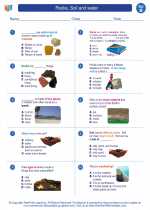Dense Connective Tissue
Dense connective tissue is a type of connective tissue characterized by tightly packed collagen fibers.
Structure
The extracellular matrix of dense connective tissue is mainly composed of collagen fibers, which are densely packed and arranged parallel to each other. This arrangement provides the tissue with great strength and resistance to tension. The cells within dense connective tissue are primarily fibroblasts, which produce and maintain the extracellular matrix.
Types
There are two main types of dense connective tissue: regular and irregular.
Regular Dense Connective Tissue
In regular dense connective tissue, the collagen fibers are arranged in parallel bundles, providing the tissue with tensile strength in one direction. This type of tissue is found in tendons and ligaments, which connect muscles to bones and bones to other bones, respectively.
Irregular Dense Connective Tissue
In irregular dense connective tissue, the collagen fibers are randomly oriented, providing the tissue with strength in multiple directions. This type of tissue is found in the dermis of the skin and forms protective capsules around organs and joints.
Function
The main function of dense connective tissue is to provide structural support and strength to various parts of the body. It also helps in resisting mechanical stress and maintaining the structural integrity of organs and tissues.
Study Guide
- What is the main component of the extracellular matrix in dense connective tissue?
- What are the two main types of dense connective tissue?
- Where is regular dense connective tissue found in the body?
- What is the function of dense connective tissue?
◂Science Worksheets and Study Guides Second Grade. Rocks, Soil and water

 Worksheet/Answer key
Worksheet/Answer key
 Worksheet/Answer key
Worksheet/Answer key
 Worksheet/Answer key
Worksheet/Answer key
 Vocabulary/Answer key
Vocabulary/Answer key
 Vocabulary/Answer key
Vocabulary/Answer key
